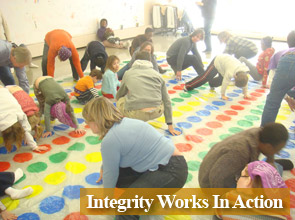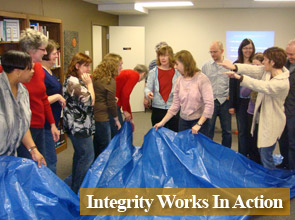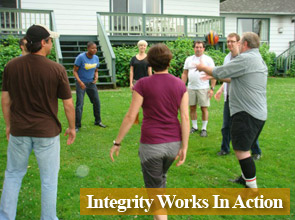I was recently on The Bill Kelly Show talking about bullying. Yet another child had committed suicide – in my mind, murdered by persecution from bullies he felt he could no longer bear to face.
Imagine a young boy, getting into his bed, the one with the colourful picture covers, that curled up in – fresh out of the bath – soapy sweet snuggly place where stories were told, hugs, kisses, and giggles were shared, and dreams were dreamed, tying a plastic bag around his head, truly believing that it would be better to cut his life short, forgo all of life’s possible adventures and joys, leave the people he loves, rather than face his oppressors once again. Do you imagine that before he put on the bag, the one he fearfully snuck and hid upstairs, he looked around his room one last time, wide eyes lingering on familiar posters and treasured mementoes? Can you picture him playing with his favourite toys just one more time, perhaps saying goodbye to his dog – getting one last slobbery kiss? Maybe he even did his homework one last time like he knew a good boy would. And imagine the poor father who found him.
It enrages me! Despite clear evidence that there are comprehensive anti-bullying programs available (such as the internationally reknowned Olweus Program) that prevent bullying and promote peace, many of our schools remain unsafe for the children who should find these places a refuge and a haven within which to grow and be nurtured. Far too many children DREAD going to school, and far too many children die or become severely damaged from the persecution they receive.
None of this will change until we become as serious about protecting our children’s rights as we are about the rights of adults. There is no way that we adults would ever put up with in our workplaces the kind of traumatizing tormenting that our children suffer from in theirs.
Imagine if you called your co-workers names, pushed them around, intimidated them, persecuted them. How long would you keep your job? You’d have to leave, wouldn’t you? Then how is it that bullies are permitted to stay in our schools? Oh yes, they might get an occasional suspension, but soon enough, there they are, back again with no change in behaviour or attitude, and the oppression continues, only now worse because of retribution. Small wonder that kids are afraid to speak up or intervene.
Our school boards, teachers, and administrators need to start taking bullying far more seriously. Until they do, I say they are complicit in the deaths that are caused by the murderous behaviour of the bullies they harbour. Until they do, I applaud the recent law suits filed by parents against schools for not protecting their children’s rights to a safe working environment. And I encourage parents to protest unsafe schools by refusing to bring their children to school until that school is safe. Think about it; in what other unsafe situation/environment would you ever leave your child? Band together with other parents. Join or form homeschooling associations. Do anything but expose your child to risk for suicide, depression, and demolished self-esteem – especially if you know your child is being bullied!
What further enrages me is when victims of bullying oppression are blamed for their misery. The message to them really is to stop being so damn different! Be more confident, be more social, look people in the eyes, talk more, etc. etc. Would you accept that advice at your workplace if you were being bullied there? Can we please begin teaching children right from the start about valuing difference rather than being threatened by it? The emphasis should be on preventing bullying behaviour, not on changing the behaviour of the innocent who may have a different way of walking, thinking, dressing, talking, being. Let nerds be nerds (I speak as a devout nerd).
A bully who continues to bully gives up his/her right to a public education. Your rights should never interfere with the right of others to enjoy the same. If they do, you need to be removed from the company of those whom you are damaging until you can prove you are able to safely return.
Until we start removing bullies, institute comprehensive early onset anti-bullying programs, and teach children how to respect and love each other with the same time and energy commitment we have to teaching them math, science, and english, we will continue to inflict suffering on our children. They will continue to commit suicide, or engage in other self destructive behaviour, or they will become destructive of others out of their understandable pain, bitterness, and rage. And then, when they die, or take a gun to school, or blow up buildings (when young or as damaged adults), we will once again throw up our well-wrung hands and stupidly wonder, “How could such a terrible tragedy happen to…”
Thank you for reading.
Theo













